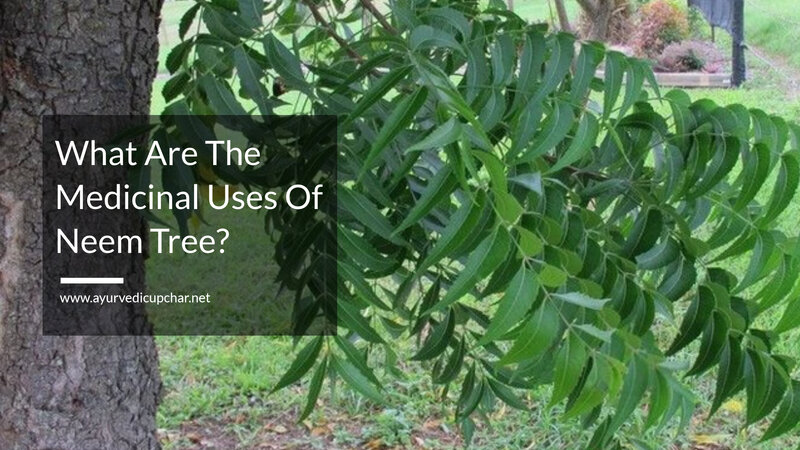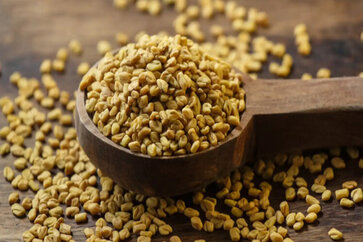Medicinal Uses Of Neem Plant In Points

The medicinal properties of Neem have been known to the inhabitants of India since time immemorial. The first medical writings in Sanskrit referred to the benefits of Neem fruit, seeds, oils, leaves, roots, and bark. Each of these has been used in ayurvedic medicine for 10,000 years.
In Ayurvedic literature, Neem is described as follows:
- The fresh bark of Neem is bitter, astringent, pungent, and refrigerant.
- It is useful for tiredness, cough, fever, and loss of appetite. Heal wounds and conditions that suffer from Kapha, vomiting, skin diseases, excessive thirst, and diabetes.
- Neem leaves are reported to be beneficial for eye disorders and insect poisons. It is anti-leper.
- Its fruits are bitter, purgative, very good against hemorrhoids, and anthelmintic. It is claimed that the Neem plant is its parts are beneficial to many incurable diseases.
- Besides this Neem products are traditional, been used against a wide variety of diseases including heat, rashes, boils, wounds, jaundice, leprosy, skin diseases, stomach ulcers, chickenpox, etc.
- Neem leaves are used in the Ayurvedic herbal remedies of India, for purification and cleansing. Neem is an immune stimulant, antibiotic, and purifier. It strengthens the immune system, protecting against all kinds of diseases (including the flu).
- Antiparasitic properties that help the intestinal flora. Hypolipidemic, is the property that helps in lowering blood lipid levels, contributing to cholesterol control.
- It reduces the discomfort of the gastro-duodenal ulcer, regulating the PH, preventing flatulence, and providing light digestion.
- In addition, it is extraordinarily effective as a preventive and treatment of prostate problems; as well as for all types of joint pain, such as arthritis or osteoarthritis.
- Modern research also confirms the healing powers of Neem in the case of many diseases and provides indications that in the future Neem could be used much more widely.
What are the medicinal uses of neem trees?
Neem is practically used in ayurvedic medicine for various purposes, it contains a unique set of active substances, including flavonoids, tannins, and tannins, as well as a large amount of calcium, potassium, and iron salts.
But the plant was widely used in Hindu traditional medicine. In particular, it was used to treat various kinds of inflammation, scrofula, hepatitis, leprosy, rheumatism, ringworm, and even syphilis. Below are more than 10 uses of neem.
1. Cardiovascular diseases
Neem prevents the risk of heart attacks. It prevents blood clotting (thrombus formation), reduces cholesterol, regulates beats, and also regulates blood pressure.
An active compound of the neem leaf extract, Nimbin or nimbidin, has antihistamine property is a vasodilator, so it is used intravenously to reduce blood pressure.
According to recent studies, neem leaf extract can reduce cholesterol levels by up to 30% after being properly administered.
2. Diabetes
With fasting, neem oil is beneficial, as insulin-dependent people can reduce the insulin dose and, in some cases, the pancreas will normalize and dispense with it.
In non-insulin-dependent diabetics spectacular results are being obtained, although the control of the diet is still important, with the treatment of neem in drops, it is getting that diabetes disappears in the majority of cases.
3. Psoriasis
Neem oil is probably the best product currently available to treat psoriasis. Besides, it moisturizes and protects the skin while helping to heal other injuries. It is indicated for dry, flaky, or irritated skin.
Experiments performed in patients with psoriasis showed that a combined treatment of leaf extract intake and topical use of seed oil achieved results comparable to those obtained with cortisone application.
With the extract of the neem seed, a bar of soap is made for washing the whole body, and also with this extract, a combination is made to apply on the affected areas; The wonderful results of this product cause itching and pain to stop, feeling great relief while reducing the redness of the lesions and the scar tissue will restore the sores until they disappear after a while.
4. Cancer
In the bark, leaves, and Neem oil, polysaccharides, and limonoids are the properties that can reduce cancerous tumors that have been discovered.
5. Herpes
Neem leaf extracts fight the herpes virus and quickly heal wounds, itching, redness, and blisters caused by herpes.
6. Kidney Stones
The consumption of neem tea has proven beneficial, not only as a preventative but also to help dissolve the stones and be expelled in the urine.
7. Prostate Problems
Recent scientific studies have demonstrated the properties of neem leaf extract to induce apoptosis (cell death of cancer cells).
So the usual consumption of tea or neem capsules favors the prevention and treatment of prostate cancer. Also, it is very effective in reducing inflammation of the prostate, thus facilitating urination.
8. Dermatology
Neem is highly effective in treatments against acne, rash, dandruff, and eczema, among others, reducing skin rash, healing, and disinfecting damaged areas, as well as excellent wrinkles
9. Migraines
Neem contains compounds similar to aspirin (prostaglandin inhibitors) for pain relief. Neem also helps reduce blood pressure, which is often the cause of headaches and migraines. Regularly ingesting neem tea is an effective aid in reducing these disorders.
10. Allergies
Neem inhibits allergic reactions by improving the conditions of watery eyes, tearing, and sneezing.
11. Ulcers
Neem extract offers significant protection from discomfort and accelerates the healing of gastric and duodenal lesions. Neem oil reduces the discomfort of gastric ulcers, healing lesions and regulates pH, prevents flatulence, and provides light digestion.
12. Hepatitis
Tests in the United States have shown that neem fights the virus that causes hepatitis B, obtaining excellent results in hepatitis disease.
13. Fungi
The Neem fights some fungi including those that cause athlete’s foot and Candida, an organism that causes mouth infections known as “fires.”Its bio-active ingredients are anti-malarial, anti-inflammatory, anti-pyretic, anti-bacterial,
14. Malaria
An active ingredient in Neem leaves to fight the Malaria virus. It has been used in the traditional treatment of malaria for centuries. The compounds are effective against malaria parasites and toxic to resistant strains of malaria.
These compounds are very effective against malaria it acts as quinine and chloroquine. Drinking neem teas or chewing a couple of leaves every day reduces the possibility of contracting malaria.
15. Flu and Colds
Regular consumption of capsules of neem tea strengthens the immune system, effectively protecting against the occurrence of flu and colds.
In addition, in the case of getting sick, the duration and severity of viral processes will be much less.























